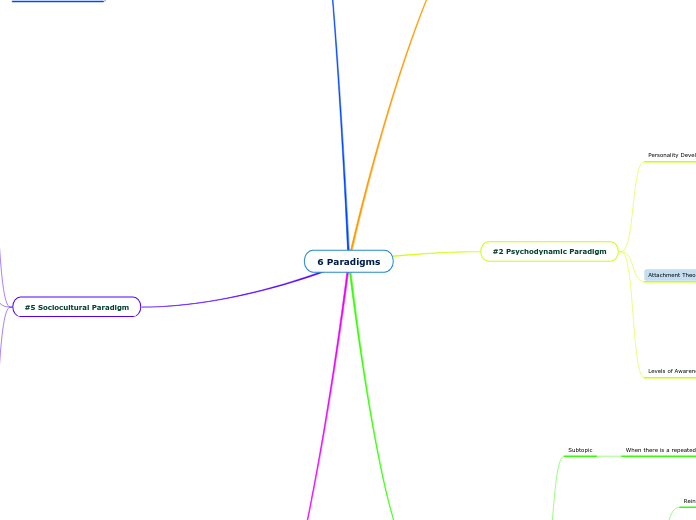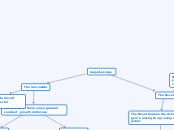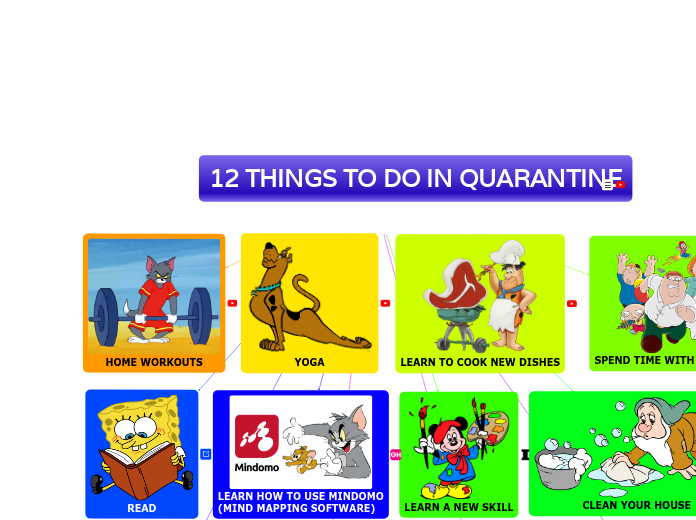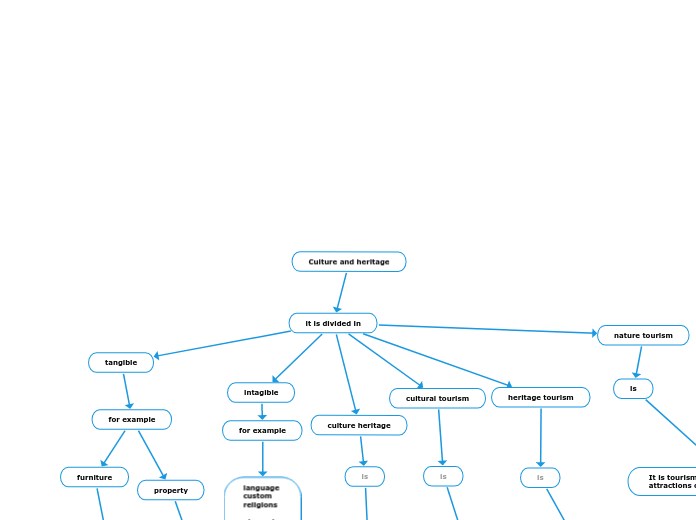6 Paradigms
#4 Cognitive Paradigm
How people think(their POV)
from their:
Attitudes
Beliefs
Perceptions
Thoughts
Experiences
Schema
If a child is told they are stupid, dumb and will never amount to anything the child will start to believe these statements
Children believe
what they are told about
themselves and the world
around them.
#5 Sociocultural Paradigm
Ecological Model
Looks at Social and Cultural factors and considers conditions outside of the individual culture
Pattern of relationships to each level
in the Bronfenbrenner ecological model
Holistic Model
(The whole Child)
Environment
Dysfunctional
Environment Includes
Racism
Abuse
Gang Violence
Poverty
Community
Mental Health/
Learning difficulties
Religion
Illness
Friends/ Family
Attachment issue
Culture
Race
Sex
Gender
Ethnicity
#6 Two eyed seeing
Two eyed seeing
Learning to use both together
can benefit everyone
Other eye has strength from
Western knowledge
Compartmentalized
individualistic
Objective &
Scientific
Hieratical
One eye has strength
from indigenous knowledge
Interconnected
Non hierarchal
Subtopic
Traditional
Medicine Wheel
Strategies
Participating in and
contributing to the
community
Connecting with the land
Spiritual activities
Such as sweats, ceremonies and round dancing
Holistic
#3 Behavioral Paradigm
3. Social and Observational Learning
They will role model acceptable or unacceptable behaviour
Gentle and caring adult
Verbal, physical and
emotional abuse
Domestic Violence
Research has shown that boys who witness their fathers perpetrating violence against women often grow up to do it as well, and girls who witness violence against their mothers may become later victims of violence.
Role modeling
Child will copy behaviours they see around them
2.Operant conditioning
In this form people engage in various behaviours, but it is what follows the behaviours, the consequences, that influences the likelihood of that behaviour occurring again in the future.
Punishment
Yelling and insulting
Taking away things one enjoys(electronics, etc)
Time outs/ Time Ins
Reinforcement
Ex. If every time a child threw a tantrum and the parent or caregiver didn't know how to handle the behaviour and would just give the child the tablet because that always makes him quiet down then the child will realize if he throws a tantrum he will always get the tablet.
Lollipop/ candy
Positive feedback
Stickers
1.Classical Conditioning
When there is a repeated response to a certain event
Ex. If right before dinner someone rang a bell to let you know after a while you will be conditioned to think about food whenever you hear the sound of a bell and subconsciously believe you are getting food right after.
#2 Psychodynamic Paradigm
Levels of Awareness
3.Unconscious
Has a significant influence on ones behavior
Freud believed that the unconscious mind to be the most significant level of awareness
Memories and traumatic events that can't be easily recalled
2.Preconscious
Feelings and memories that can be easily brought up to mind
1.Conscious
Memories, thoughts, feelings etc.
You are aware of
Attachment Theory
Insecure Attachment
Forms when caregiver is neglectful or not usually present
Not Ideal to have
Secure Attachment
Develop this with a healthy relationship with caregiver
Ideal to have
Personality Development
Superego
Ego
ID
Pleasure Principle
Seeks immediate gratification for it's impulses
Provides the energy for basic biological motives
Hunger, thirst, affection, warmth, and aggression
Present at birth
#1 Biological Paradigm
Neurotransmitters(Chemicals)
Norepinephrine
GABA
Serotonin
Levels of Dopamine
Brain Structure
Physical Trauma/ Injury to the brain
Drugs or alcohol at a young age
FASD
Frontal Lobe
Cebral Cortex
Amygdala
Inheritance
From biological mother and father
DNA and Genes









